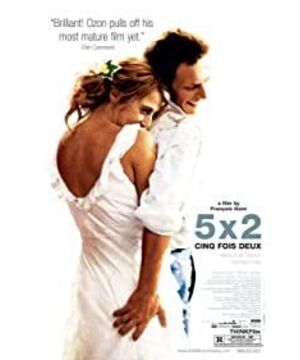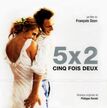5×2=10, 5 life stages, 2 people, 10 emotional experiences. Another translation is "Love Appreciation Period", I prefer this digital formula, and there are infinite interpretation possibilities.
Ou Rong, an upstart French film director, plays with form and deviates from Bazin's theory. I heard about his "Qianjiao Bamei", but I didn't have a chance to see it. This is the first time to see his film, which is a new film, and competes with "Coffee Time" for Venice's works. Jia Zhangke's "The World" is also on the list. The difference between the three is huge.
It opens with a couple in their late thirties dealing with divorce, and then uses five classic Italian love songs in the 1960s as identification to flashback their other four important life stages - entertaining guests, having children, getting married, and falling in love. It is really shocking to describe the collapse of marriage in this way. If we follow the traditional order, this film may be very ordinary. It only tells the truths that people on earth know that "love is easy to get along with" and "love has a shelf life". Appreciate it. The narration arranged by Ou Rong is extremely concise, each episode is just enough, leaving an endless aftertaste; and every episode of life is unexpected. It should have been a good breakup, but ended in rape, it should have been a happy party but hurt each other, should have shared the joy of having a child, but had to bear it alone, should have spent the wedding night sweetly, but cheated in the middle of the night, until the last two paragraphs People carry each other into the sea, knowing that they will fall in love, get married, have children, and then, divorce. How cruel.
You can feel Ou Rong's wit and agility. He is fresh and interesting, and he is very good at choosing music. The love songs between each paragraph are very nice, and the original sound is generous and generous.
View more about Five Times Two reviews











